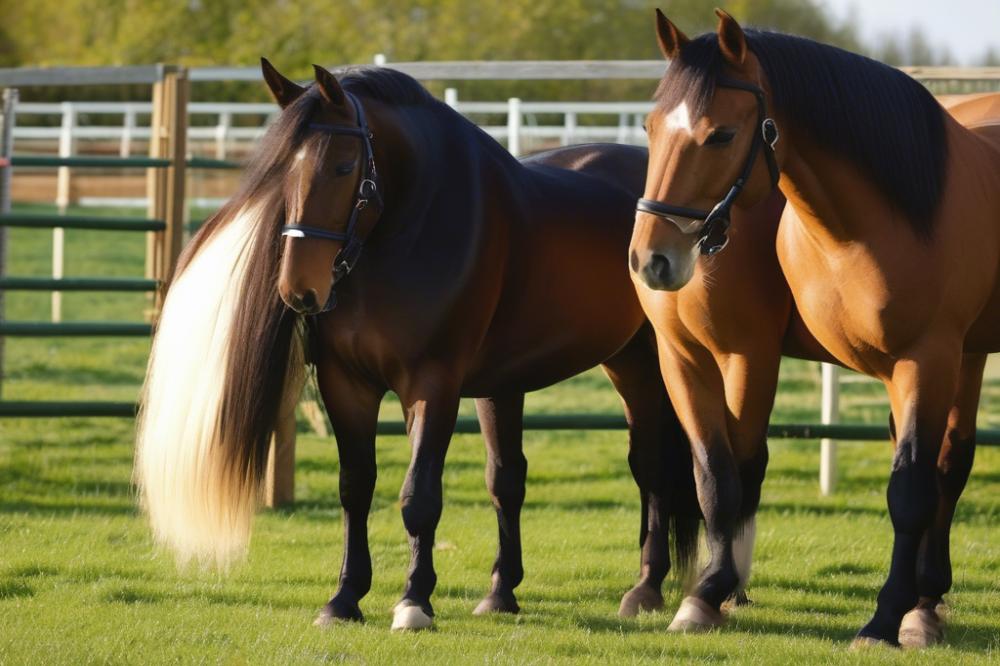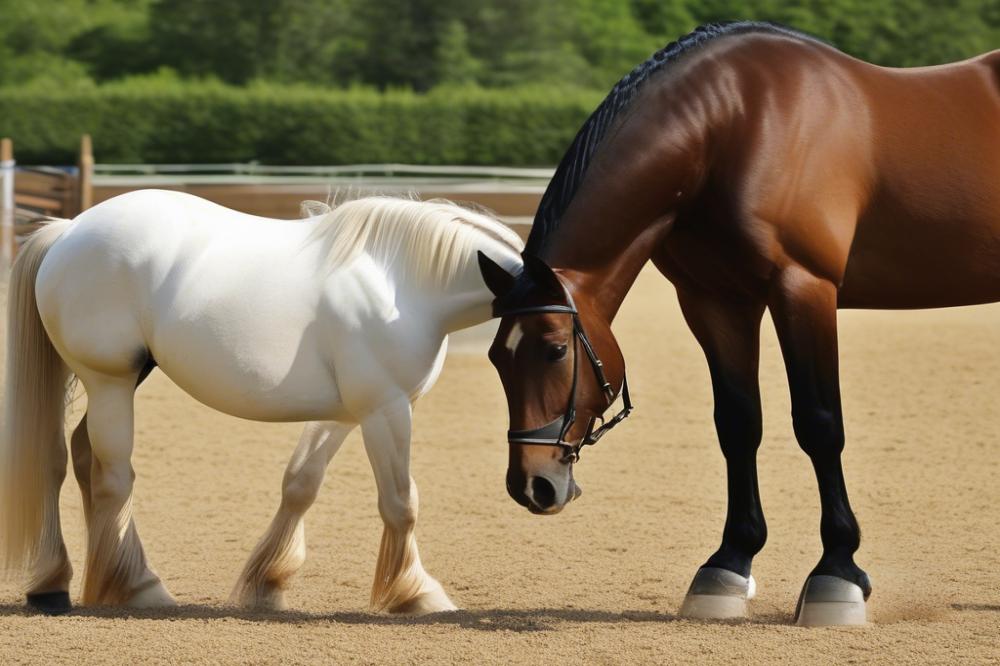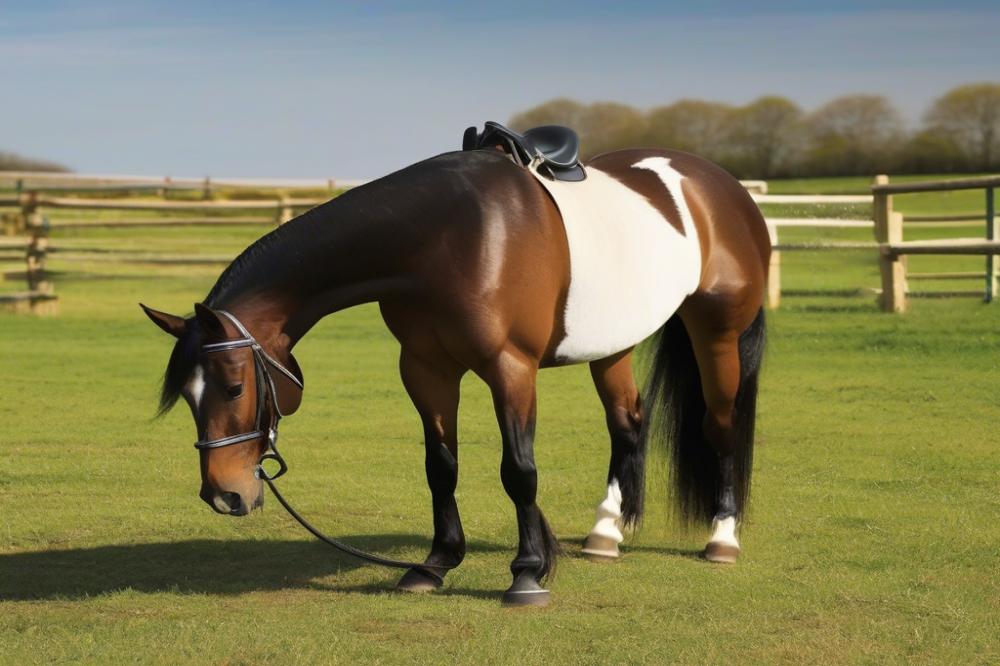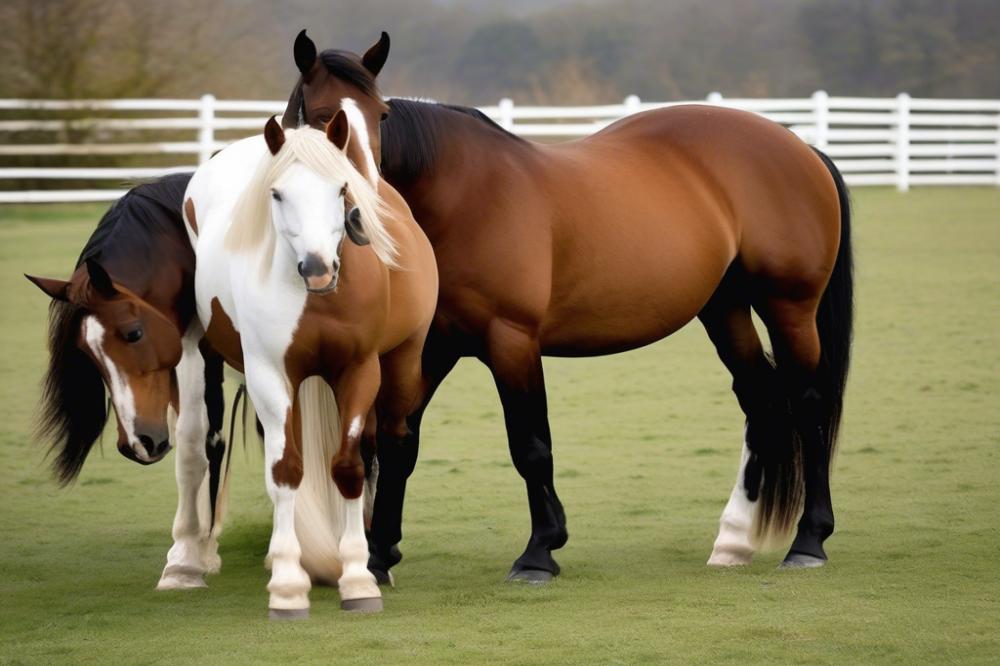Understanding Fleas and Their Impact on Horses
Picture this: you’re out in the barn, enjoying a sunny afternoon with your horse, and suddenly you spot your four-legged friend scratching intensely. You might wonder, do horses get fleas? This question is not uncommon among horse owners. While we often think of fleas as pesky little bugs that mainly bother dogs and cats, it’s important to recognize that these tiny creatures can also find their way onto our beloved equine companions.
Understanding pests like fleas is essential for maintaining equine health. Just like us, horses are susceptible to a variety of uncomfortable invaders. Fleas can cause irritation and lead to secondary issues such as infections or allergies. It might seem like a minor inconvenience, but for a horse with sensitive skin, it can be a real nuisance. Knowing about potential pests can help you provide effective horse flea prevention measures, keeping those annoying bugs at bay.
Let’s delve a bit deeper into fleas themselves. Typically found on furry animals like cats and dogs, they thrive in warm and humid environments. These critters are about the size of a pinhead and can leap impressive distances, which is precisely how they switch hosts so easily. Imagine if all the fleas in the world decided to hitch a ride on the number of horses in the world; it would be quite a sight! While not as common on horses, they can still make an appearance, especially if your equine buddy shares space with other animals.
Horse grooming plays a huge role in keeping your steed’s coat healthy and can help in spotting any unwanted critters early on. Establishing a regular routine of grooming not only supports good horse skin care but also strengthens the bond between you and your animal. After all, there’s nothing quite like those quiet moments spent brushing away dirt and ensuring everything is as it should be.
Additionally, knowing about the specific needs of various breeds, such as the elegant British horse breeds, can further aid in crafting a solid care routine. Always keep an eye out for signs of discomfort or irritation in your horse. It pays to stay informed and proactive when it comes to horse care. And remember, a little extra attention can go a long way in keeping your horse healthy and pest-free!
Do Horses Get Fleas?

Examination of Whether Horses Can Get Fleas
Some folks might wonder if their beloved horses can actually get fleas. While these pesky little critters are quite common in pets like dogs and cats, they don’t typically bother our equine friends. Horses have a different type of skin and coat, which isn’t all that inviting for fleas. In the horse world, these critters are generally more focused on other types of parasites. Think of it like this: a horse’s hair is like a thick winter coat. It’s not the ideal place for fleas to make their home.
Differences Between Horse Hosts and Typical Hosts Like Dogs and Cats
When comparing horses to dogs or cats, one can see distinct differences. Dogs and cats have short hair and unique skin that often attract fleas. With their silky fur and thinner skin, these animals provide easy access for fleas to latch onto. Horses, however, are quite different. Their hair is typically longer and coarser, which makes it harder for fleas to hang on. Plus, a horse’s larger size means that any flea infestation wouldn’t be quite as noticeable.
Additionally, horses don’t usually live in the same close quarters as many dogs or cats. Horses stay outdoors or in stables, far away from typical flea hotspots. Fleas love cozy places like beds and couches, not wide open pastures!
Conditions Under Which Horses May Attract Fleas
Despite their lower likelihood of attracting fleas, certain situations may change things. A horse that is stressed or has poor hygiene might be more vulnerable to pests. For instance, if grooming routines aren’t maintained, it can lead to a messy coat. This makes it easier for all sorts of horse parasites to take hold.
Another factor is environment. If a horse shares a space with infested animals, there’s a chance fleas might hitch a ride. Think of it like sharing a car with someone who has a cold; you could end up catching it, too!
While overall horse flea prevention isn’t a huge concern, keeping on top of horse skin care is essential for general well-being. Regular grooming can help maintain a healthy coat and reduce any potential for fuzziness that pests might enjoy. Pay attention to your horse’s comfort, cleanliness, and overall health, and you’ll have a happy, flea-free friend.
Flea Life Cycle

Many people wonder about the flea life cycle, especially when it comes to horse parasites. Fleas have a fascinating journey from egg to adult. Understanding this cycle can help in horse flea prevention.
Stages of Development and Duration
Fleas go through four main stages: egg, larva, pupa, and adult. It starts with the female flea laying eggs. An adult flea may lay dozens of eggs each day! These eggs are tiny and can fall off the host animal into the environment. After a week or two, those eggs hatch into larvae.
Larvae are small and look like little worms. They don’t feed on blood. Instead, they munch on organic debris, including flea droppings. This phase can last around one to two weeks. Once they’re ready, they spin cocoons and become pupae. In this stage, they can hide for weeks or even months. The adult flea emerges when it senses a host nearby.
How Fleas Spread and Infest Environments
Fleas can infest many areas quickly. They often hop from one animal to another. Have you ever seen a dog play with a horse? That’s one way fleas can travel. They can also hitch a ride on humans or other pets. Fleas are pretty crafty and can move into barns, stables, and even homes.
If proper horse grooming and horse skin care aren’t part of your routine, these pests will multiply. An untreated horse can become a flea party zone! Infestations lead to itchy skin and discomfort. Keeping environments clean is crucial for preventing these annoying critters.
In summary, fleas might not be a common concern for all horse owners, but they can become a real headache. Understanding the flea’s journey from egg to adult emphasizes the importance of regular horse care. Keeping an eye on your horse’s health is vital for their comfort.
Signs of Flea Infestation in Horses

Common Symptoms of Fleas on Horses
When it comes to identifying a flea problem, knowledge is key. Horses might not scratch like a dog, but they can still show signs of discomfort. A horse with fleas may frequently stomp its feet or shake its head. These behaviors can be easy to overlook but are important signals. You might notice some hair loss or red, irritated patches on the skin. Sometimes, you’ll even spot little black dots in the coat—those could be flea droppings.
Behavioral Changes and Physical Signs to Watch For
Keeping an eye on your horse’s behavior can be revealing. If your normally calm steed suddenly acts restless, it’s worth investigating. Maybe they seem really itchy, which could certainly indicate something amiss. Look for excessive grooming or rubbing against fences and trees. Your horse’s mood can shift too; they may be more anxious than usual. Don’t ignore any signs of distress.
Importance of Early Detection
Catching these pesky horse parasites early can save a lot of trouble down the road. The sooner you identify fleas, the easier it is to handle the problem. Delaying can lead to more severe infestations, causing even bigger health issues for your equine friend. Plus, treating fleas promptly helps keep your horse comfortable. Regular horse grooming can be a great way to spot any unusual changes. Remember, good horse skin care not only makes your horse look good but also helps keep pests at bay. Paying attention is essential for maintaining equine health. So, keep those eyes peeled!
Health Risks Associated with Fleas
Fleas may not be the first thing that comes to mind when thinking about horse care, but they can cause some serious health risks. Horse parasites, like fleas, can lead to a variety of problems in our equine friends. Most people think that fleas are just a nuisance, but the truth is, they can spark some real trouble for horses.
Potential Health Issues Linked to Flea Infestations
One common issue that comes with flea infestations is skin irritation. Fleas bite and can cause intense itching. Imagine something constantly poking you. That’s what it feels like for a horse. Because of this, horses might start to rub against fences or roll in the dirt, trying to get relief. In some cases, horses develop allergic reactions. This can lead to red, inflamed patches on the skin that need special horse skin care.
Another risk of having fleas around is the chance of transmitting diseases. Fleas can carry various pathogens and could potentially spread these to your horse. Some diseases might not directly affect horses but can lead to broader health issues over time. It’s always better to be safe than sorry.
Allergic Reactions and Skin Irritations in Horses
As fleas bite, they can introduce saliva into the horse’s bloodstream. This saliva can cause an allergic response in some horses. The result? Your horse might end up with hives or hair loss in the affected areas. If your horse starts scratching a lot or shows signs of discomfort, it’s time to inspect for fleas.
Skin irritations might also lead to infections. A horse with open sores is at risk for bacteria. This could mean additional vet bills and more headaches for you. Regular horse grooming helps prevent flea issues. Keeping an eye on your horse’s condition is key to maintaining equine health.
Transmission of Diseases and Parasites
Fleas can act as hosts for other parasites. These little pests can carry tapeworm eggs and pass them on to horses, leading to further complications. A tapeworm infection can affect a horse’s overall well-being and lead to weight loss or lethargy. It’s a chain reaction; one problem tends to lead to another.
Not every flea bite is harmless. When horse flea prevention isn’t done right, it can open the door for serious issues. Deworming should be part of regular horse care to ensure a healthy horse. Heres a tip: If your horse is scratching more than usual, it might be time to check for fleas and other parasites.
Prevention Strategies
Most horse owners worry about pests, especially those pesky horse parasites. Thankfully, there are effective methods to keep fleas at bay. Let’s dive into some practical strategies that can help you maintain your horse’s well-being.
Effective Methods to Prevent Fleas on Horses
First and foremost, regular grooming plays a key role in horse flea prevention. Brushing your horse not only helps remove dirt and debris but also clears away any wandering fleas or pests before they settle in. Think of it as a daily spa treatment that keeps their coat shiny and healthy.
Your horse can benefit from routine baths as well. Using mild shampoos created specifically for equine skin care helps wash away any unwanted critters. Never underestimate the power of a good wash. Even the most stubborn flea might think twice after a nice bubble bath!
Role of Grooming and Environmental Management
Horse grooming is more than a beauty ritual; it’s also about checking for any signs of trouble. While brushing your horse, you get the chance to feel for unusual bumps or irritations that could indicate flea activity. A few minutes of careful grooming can save you a lot of hassle down the road.
As for environmental management, looking at their living space is crucial. Keeping the stall clean and free of bedding buildup helps reduce flea habitats. If a horse spends time in a pasture, be sure to manage the grass and weeds. Fleas love hiding in tall grasses, so a well-manicured field can keep them at bay.
Use of Flea Treatments and Preventive Measures
Using flea treatments can also play a significant role in maintaining equine health. There are several options available, from specialized shampoos to topical treatments. Don’t hesitate to consult a veterinarian for the best products suited for your horse. They’re experts at addressing this type of concern.
Don’t forget, prevention is often much better than treatment. Incorporate these horse flea prevention strategies into your routine. When it comes to your horse’s comfort, a little effort goes a long way. Plus, who doesn’t love a happy, itch-free horse?
Treatment Options for Fleas
Finding fleas on your horse can feel like a nightmare. Luckily, there are ways to tackle this issue head-on. If you discover these pests, act quickly!
Overview of Treatment Methods
First off, you can choose from various treatment methods. Topical solutions can directly target the fleas. These are usually applied to the horse’s skin, often along the back. Some people prefer systemic treatments which go into the horse’s bloodstream to fight off parasites from within. Both methods have their perks, so it can boil down to what works best for your situation.
Topical and Systemic Treatments Available
Topical treatments include sprays, shampoos, and spot-on solutions. They tend to work rapidly, killing adult fleas on contact. Meanwhile, systemic treatments come in oral forms or injections. It might take a bit longer for them to kick in, but they can offer lasting protection. Make sure you read the labels carefully. Some products are specific to certain types of horse parasites and may not be safe for your equine friend.
Consultation with Veterinarians and Safety Considerations
When dealing with horse flea prevention, it’s wise to consult your veterinarian. They can provide tailored advice based on your horse’s unique needs. Your vet will also know about potential interactions with other medications. Safety should always be a priority. Some treatments can cause reactions or irritate the skin, especially if the horse has sensitive skin. Regular horse grooming and proper horse skin care can also help to keep those nasty fleas at bay.
Incorporating a combination of treatments may offer the best results. Fleas can be persistent little critters, after all. Taking proactive steps in horse care, like maintaining a clean environment and using effective products, can help protect your horse from future infestations. So, stay informed and keep your horse happy and healthy!
Final Thoughts on Fleas and Your Horse
As we wrap up our discussion, let’s revisit some important points about the relationship between fleas and horses. While it may seem strange to think of our majestic friends dealing with pesky fleas, these critters can indeed invade their space. Fleas often hitch rides from pets or the environment, and they can cause a range of discomfort for your equine companion. So, staying informed is key to keeping your horse flea-free.
Preventing fleas is much like a raincoat on a cloudy day; it’s essential! Regular grooming helps to keep their coat clean and shiny. Even those funny-looking grooming tools can play a vital role in spotting any unwelcome visitors. Consulting with your vet about the best treatments can ensure that your horse remains comfortable and healthy. It’s like putting draw reins on horses to guide them away from trouble. Regular attention can go a long way!
Horse owners should always be vigilant. Scanning for signs of irritation or scratching can be crucial. Remember, a flea infestation doesn’t just impact your horse; it can affect the entire horse herd behavior. If one gets fleas, others might soon follow. Sharing is not always caring in the animal world! By monitoring their environment, you can keep your horse and other animals safe from these tiny troublemakers.
In light of all this, keeping an eye out and taking preventive measures will save you a lot of headaches down the road. Horses may be big and strong, but they need our help, especially against something as annoying as fleas. So, let’s saddle up with knowledge and make a plan to keep our horses happy and carefree!



